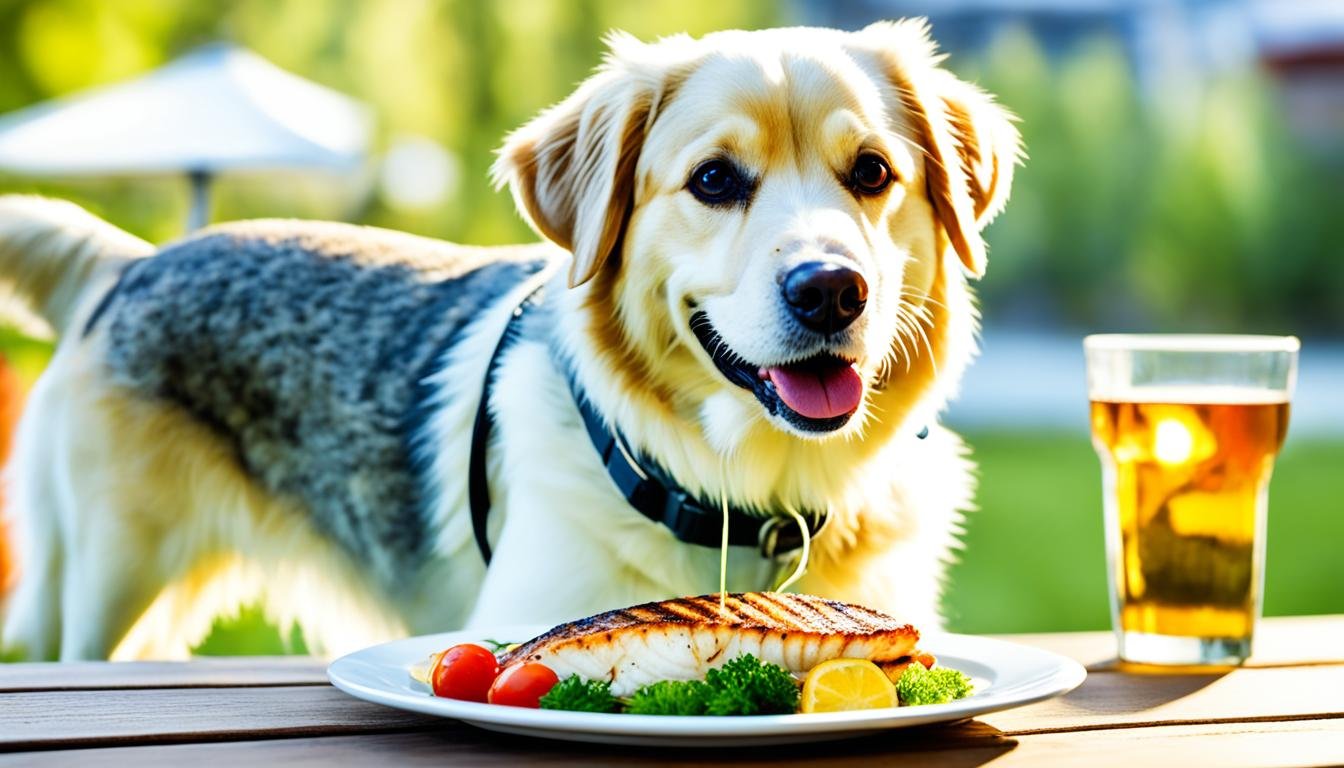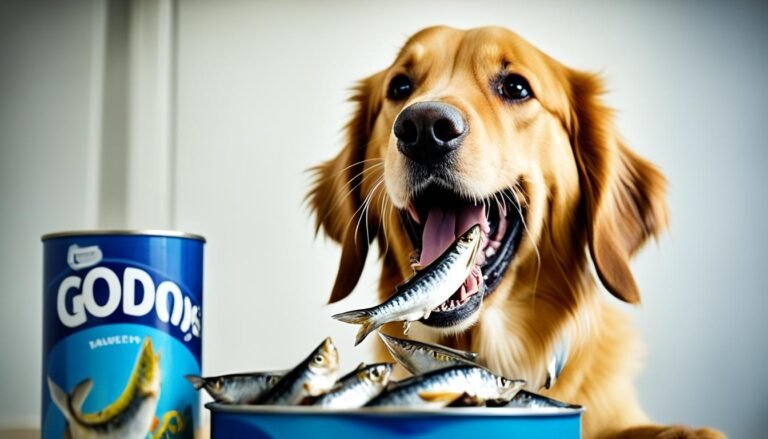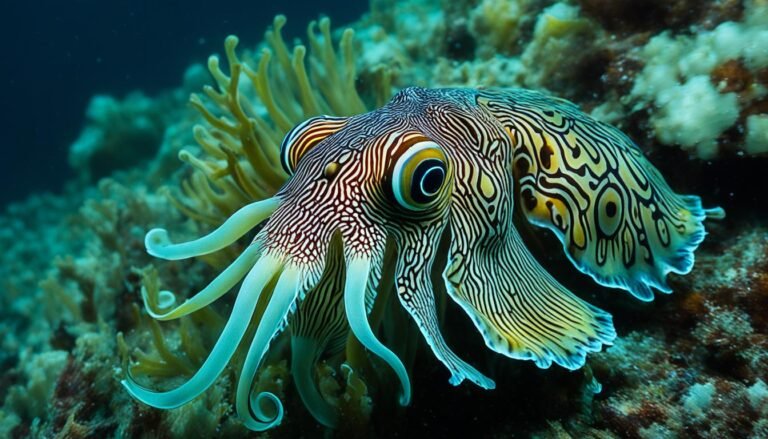Can Dogs Eat Basa Fish? A Friendly Guide for Pet Owners
Did you know 61% of British homes have a dog? I’m a dog owner too. I love finding healthy foods for my dog. Lately, I’ve been curious about basa fish. It’s a popular choice for pet foods now. But is basa fish safe for dogs to eat? Let’s find out.
Yes, dogs can eat fish, and basa is a fine choice. Many dog foods have fish as an important ingredient. And cooking fish together with other healthy foods can make a good meal. Basa fish is especially good because it’s full of protein with little fat. Dogs find it both tasty and easy to digest when it’s cooked right.
Basa is unique because it’s a “novel protein.” It’s often used in special dog foods for those with allergies. This fish is also full of vitamins and minerals. They keep your dog healthy. Remember, it’s always wise to ask a vet before giving your dog new foods. Vets can help make sure it’s a good fit for your furry friend.
Key Takeaways
- Basa fish can be a safe and nutritious addition to a dog’s diet when prepared properly.
- Basa provides high-quality protein, beneficial omega-3 fatty acids, and other essential nutrients.
- Introducing basa fish slowly and monitoring your dog’s response is recommended.
- Consulting with a veterinarian can help determine the appropriate amount and frequency of basa in a dog’s diet.
- Thoroughly cooking the fish and removing any bones or skin is crucial to avoid potential risks.
Introduction to Basa Fish and Its Safety for Dogs
Basa fish is from Vietnam and farmed in fresh water. It’s a common fish in both dog food and home-cooked meals. It’s safe for dogs if well cooked and not overeaten.
What is Basa Fish?
Basa fish comes from Vietnam’s Mekong River area. It belongs to the Pangasiidae family. These fish have a light taste and firm, white meat. That’s why many people include them in meals for dogs.
Is Basa Fish Safe for Dogs to Consume?
Yes, basa fish is known as a safe meal for dogs. It has low levels of mercury and toxins. This makes it good for dog food and treats. Always talk to your vet before making big changes in your dog’s diet.
Make sure the basa fish you give your dog is well-cooked. Remove any bones, skin, or fins. Dogs should never eat raw fish. The bones can choke them or even cut their insides.
Basa fish can be good for dogs if you manage it carefully. Start with small amounts and watch how your dog does with it. Your vet can give you the best advice on this.
Nutritional Value of Basa Fish for Canine Diets
Basa fish is great for dogs because of its top nutrition. It’s full of quality protein, key for their muscles and health. It also has omega-3 fats like EPA and DHA for less inflammation and better skin and coat.
Protein Content in Basa Fish
Basa fish gives dogs a lot of protein they need. This helps keep their muscles and all their systems healthy. The protein in basa fish protein for dogs does a lot for their well-being.
Omega-3 Fatty Acids in Basa Fish
Basa fish is rich in omega-3 fats too. These fats fight inflammation in dogs, which is good for some health issues. The basa nutritional value for dogs shows it’s good for their skin and coat.
Other Essential Nutrients in Basa Fish
Basa fish has more than just protein and fats. It has vitamins B6 and B12, phosphorus, and selenium. These help a dog’s immune system, give them energy, and protect them from harm. Adding basa fish to dog food is great for their health.
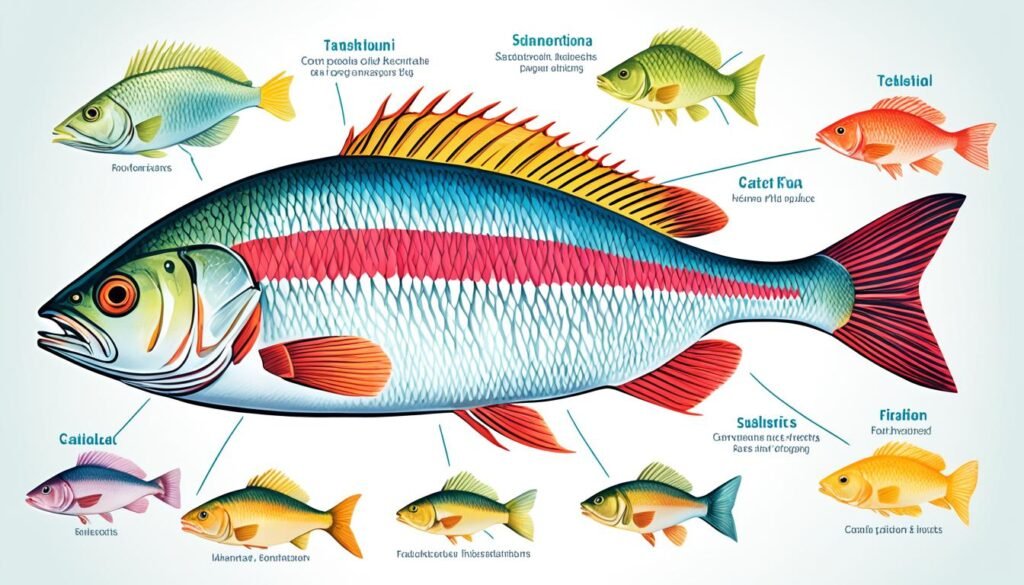
Potential Risks and Precautions for Feeding Basa Fish to Dogs
Basa fish is normally safe for dogs, but there are some things to watch out for. It could have parasites or bacteria, which might make dogs sick if the fish isn’t cooked well. So, make sure the fish is completely cooked. This kills off any harmful bugs. Also, avoid giving dogs raw or partly cooked fish. It could have parasites like flukes or roundworms.
Risk of Parasites and Foodborne Illnesses
Cooking basa fish until it’s at least 74°C (165°F) helps get rid of any bad stuff. This makes the fish safer for your pet. Remember to take out any bones, skin, or fins. They could hurt your dog when eaten.
Concerns about Mercury and Toxin Levels
Basa fish has less mercury than big, old fish. But you still need to watch how much you feed your dog, especially if they’re not so healthy. Too much could cause mercury poisoning. This is bad for the brain and the body. Talk to your vet about how often and how much basa fish is okay for your dog.
Watch out for these risks and be careful. Then, basa fish can sometimes be a nice treat for your dog. It has good nutrients for them too.
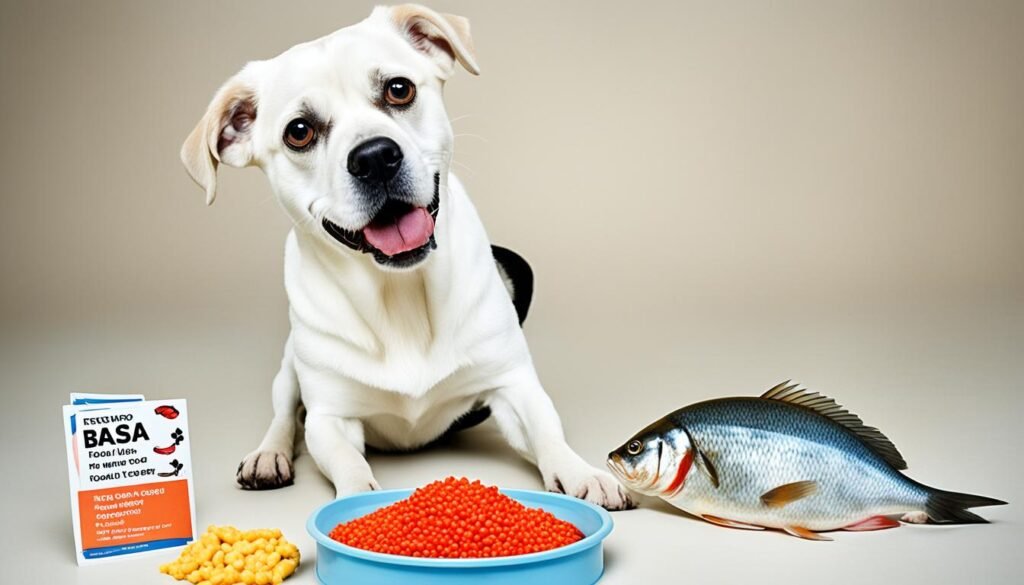
Can Dogs Eat Basa Fish?
Yes, dogs can eat basa fish safely if it’s prepared well and not overfed. This type of fish is good for them when done right. Basa fish, often called pangasius or Vietnamese river catfish, is a healthy choice for dogs. They should get it in small amounts and slowly at first.
Proper Preparation Methods for Feeding Basa to Dogs
Cook basa fish completely before giving it to your dog. Take out any bones, skin, or fins. Don’t give them fried or breaded basa, it’s not good for their health. The best way to cook it is simple, without any extra stuff, by baking or boiling.
Appropriate Portion Sizes and Frequency
How much basa fish your dog can have depends on their size and needs. For small dogs, a tiny piece a few times a week is enough. Bigger dogs can have a bit more. Start slowly and watch how your dog reacts. A vet can give the best advice, especially for dogs with health issues.

Conclusion
Basa fish can be good for dogs when cooked right and given in small amounts. It offers good protein, omega-3, and important nutrients for a dog’s health. But, make sure to cook it well, take out bones and skin, and watch how much you feed.
It’s smart to ask a vet before giving basa fish to your dog. This is especially true if your dog has health issues or needs a special diet. Talking to a vet ensures you feed your dog the right way, making everyone feel safe.
If you want to mix up your dog’s meals or boost their protein, basa is a solid choice. Just make sure it’s prepared correctly and you watch the portions. This way, your dog’s eats well and stays healthy.
